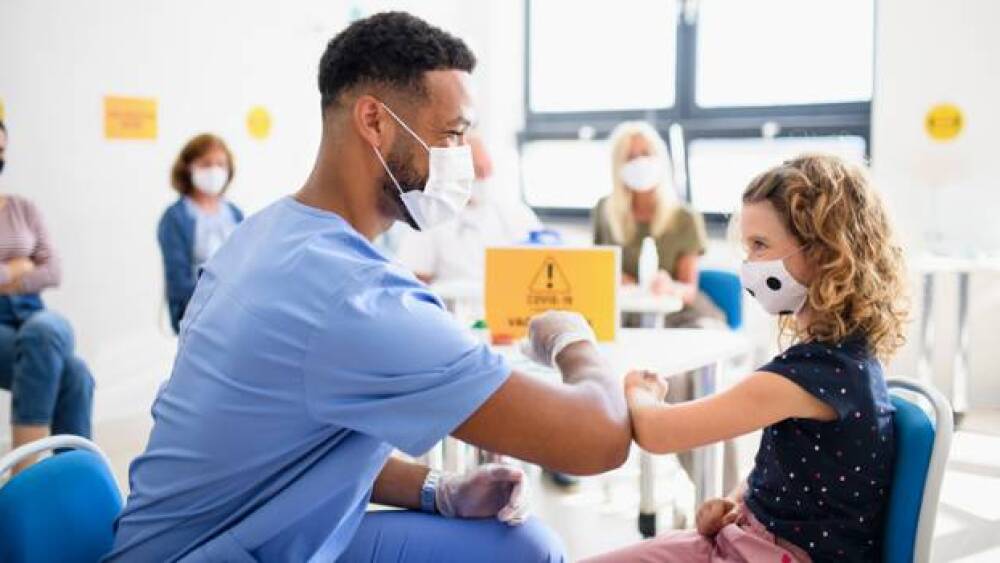Based on topline data, Pfizer stated that three doses of the COVID-19 vaccine met all immunobridging criteria required for EUA. The FDA’s advisory committee will meet June 15 to discuss the matter.
On Monday, Pfizer released data from its Phase II/III clinical trials evaluating the Pfizer-BioNTech COVID-19 vaccine in children aged six months to under five years of age. The current data readout supports the use of a three-dose series in this population.
There is currently no COVID-19 vaccine approved for children under the age of five. In February, Pfizer and BioNTech paused their rolling submission of an Emergency Use Authorization (EUA) to the U.S. Food and Drug Administration presumably due to efficacy issues related to the two-dose series. At the time, the companies chose to wait for the data readouts on the three-dose series.
Based on topline data, Pfizer stated that three doses of the COVID-19 vaccine met all immunobridging criteria required for EUA. The vaccine elicited a strong immune response in the toddlers following a third dose with a favorable safety profile. Additionally, vaccine efficacy was 80.3% in the children dosed.
“Our COVID-19 vaccine has been studied in thousands of children and adolescents, and we are pleased that our formulation for the youngest children, which we carefully selected to be one-tenth of the dose strength for adults, was well tolerated and produced a strong immune response,” Pfizer CEO Albert Bourla said in a press release. “These topline safety, immunogenicity and efficacy data are encouraging, and we look forward to soon completing our submissions to regulators globally with the hope of making this vaccine available to younger children as quickly as possible, subject to regulatory authorization.”
The third dose of the vaccine was administered to children at a time when the Omicron variant was predominant, possibly offering evidence that the vaccine is effective at providing protection against this particularly persistent variant. Previous studies of the Pfizer-BioNTech vaccine in children aged five to eleven showed that the vaccine was only 12% effective against the Omicron variant.
All eyes will be on the FDA as the data is submitted in support of the vaccine for children younger than five. On Monday, Seeking Alpha reported that the regulatory authority’s Vaccines and Related Biological Products Advisory Committee will meet June 15th to discuss Pfizer-BioNTech’s EUA application for this youngest group.
Moderna’s COVID-19 vaccine will also soon be up for discussion. In April, the company submitted a request to the FDA for EUA of its vaccine for children six months to two years and for children two years to under six years of age. The Committee will meet on June 14th to weigh the case for Moderna’s vaccine in kids six through 17.
The submission was for a two-dose series of its vaccine with supporting data from its Phase II/III KidCOVE trial. The data demonstrated a robust neutralizing antibody response in these age groups and had a favorable safety profile.
A vaccine for children under the age of five has been at the forefront of many parents’ minds as cases in children continue to rise. In an update from the American Academy of Pediatrics, the last week of April saw an increase of about 61% from early April with 53,000 child COVID-19 cases. About five million cases of COVID-19 have occurred in children in 2022 alone.
Featured Jobs on BioSpace





